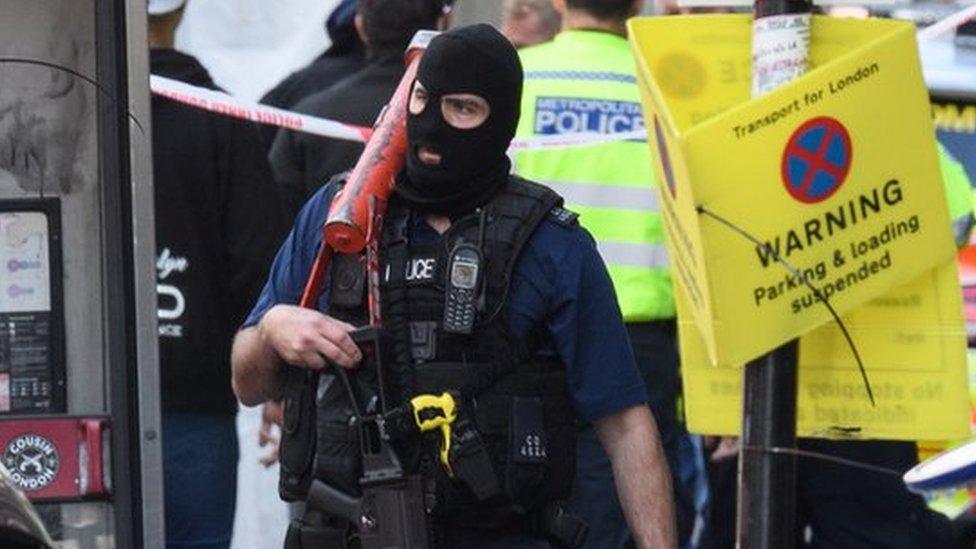UK terror attacks: Home secretary says police stretched
- Published
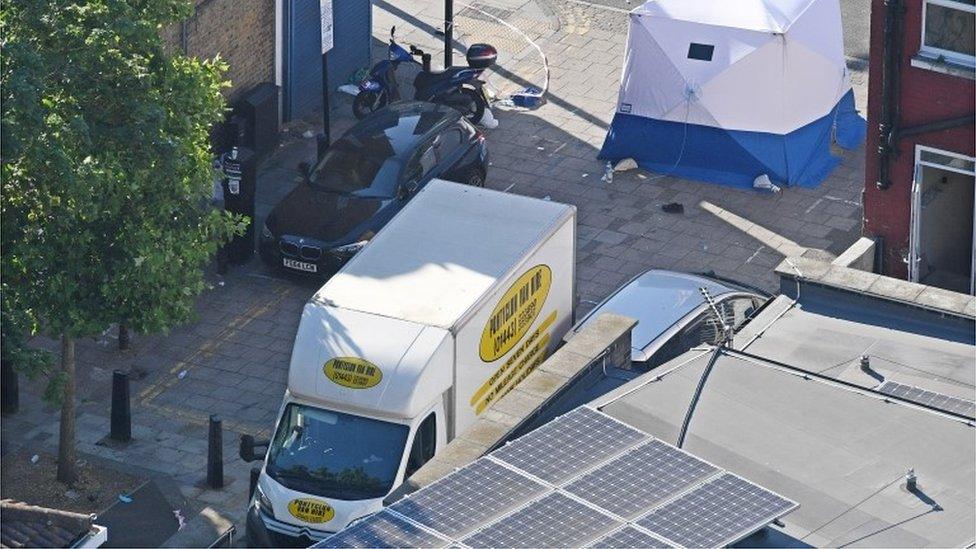
A van drove into Muslim worshippers in Finsbury Park
Terror attacks in the UK over the past three months have left police resources pulled "very tight", the home secretary has said.
Amber Rudd said an emergency counter-terrorism plan could not continue "indefinitely" but added that she would not rush to release extra money.
She said she would liaise with senior officers to make sure the government comes up with the "right response".
It follows three attacks in London and one in Manchester.
It is the first time a senior government minister has publicly accepted how stretched police are because of the heightened risk from terrorism, BBC Home Affairs Correspondent Danny Shaw said.
Ms Rudd said a review would be held into the handling of the attacks in Westminster, Manchester, London Bridge and Finsbury Park, headed by the former independent reviewer of terror legislation, David Anderson QC.
Chief's warning
On Wednesday, BBC News revealed that Assistant Commissioner Mark Rowley, national head of counter-terrorism, had written to Ms Rudd saying that resources were being moved from other policing areas which he said carried "significant" risks, and the emergency plan was unsustainable in the long-term.
In a Commons statement, Ms Rudd said: "Resources have been pulled very tight, given the additional work that is needed.
"There are different ways of addressing this and before rushing in with additional money I want to make sure that we get the right targets and the right answers."
She added: "I recognise the fact that we cannot carry on at that emergency level indefinitely."

Terror attacks this year
A group of Muslim worshippers were hit when a van mounted the pavement and drove into them in Finsbury Park on 19 June
A van hit pedestrians on London Bridge before three men got out and stabbed people in nearby Borough Market on 3 June
A suicide bomber targeted young people after a concert by US singer Ariana Grande at Manchester Arena on 22 May
A man in a hired car drove into pedestrians on Westminster Bridge then stabbed a police officer outside Parliament on 22 March

Ms Rudd told MPs more must be done to tackle extremists who try to "radicalise and weaponise" young people.
"Doing more also means asking difficult questions about what has gone wrong," she said.
"In light of the terror attacks in London and Manchester, Britain's counter-terror strategy will be reviewed to make sure the police and the security services have what they need to keep us safe.
"In addition to this, there will be a review of the handling of recent terror attacks to look at whether lessons can be learned about our approach."
The home secretary said 18 terror plots linked to Islamist extremists had been foiled since 2013.
Ms Rudd said the four attacks this year had claimed the lives of 36 innocent people - with more than 150 hospitalised - calling it a "tragic loss of innocent life."
Britain is "entering a new phase of global terrorism" which throws up "unprecedented challenges", she added.
She said the government planned to set up a commission for countering extremism.
'Cuts have consequences'
Shadow Home Secretary Diane Abbott urged ministers to focus on boosting police resources, not just new legislation.
"Cuts have consequences," she said.
Ms Abbott praised the actions of imam Mohammed Mahmoud who shielded the Finsbury Park suspect from angry crowds until police arrived.
She added: "I believe the way that multi-faith and inter-community cooperation is working in practice in that area of London shows us the way forward in the end, in the long run, in contesting the ideology of fear and violence and terror."
- Published21 June 2017
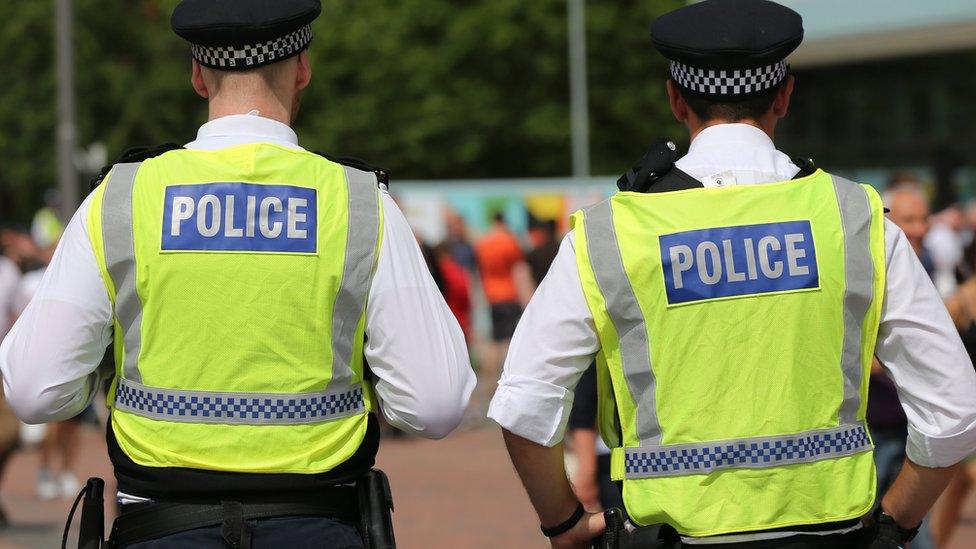
- Published19 June 2017
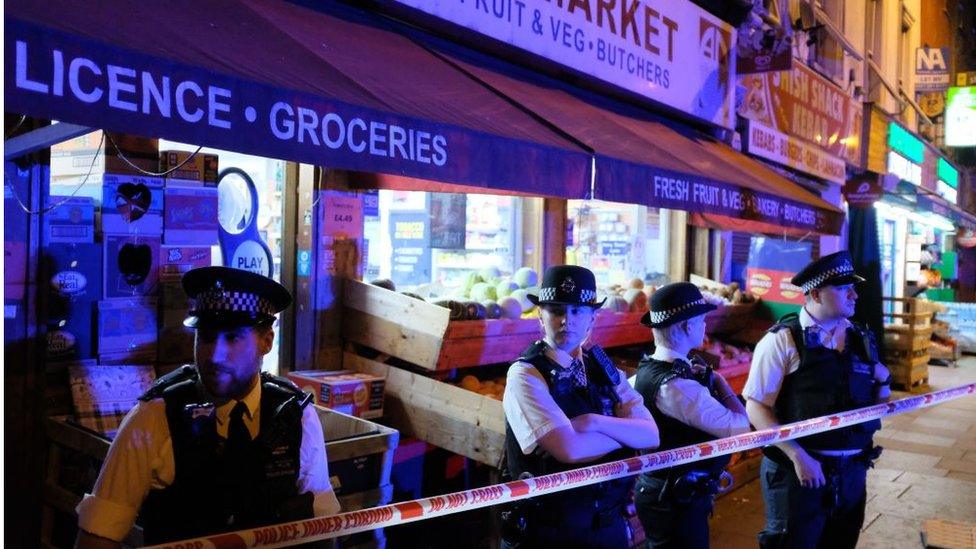
- Published3 May 2019
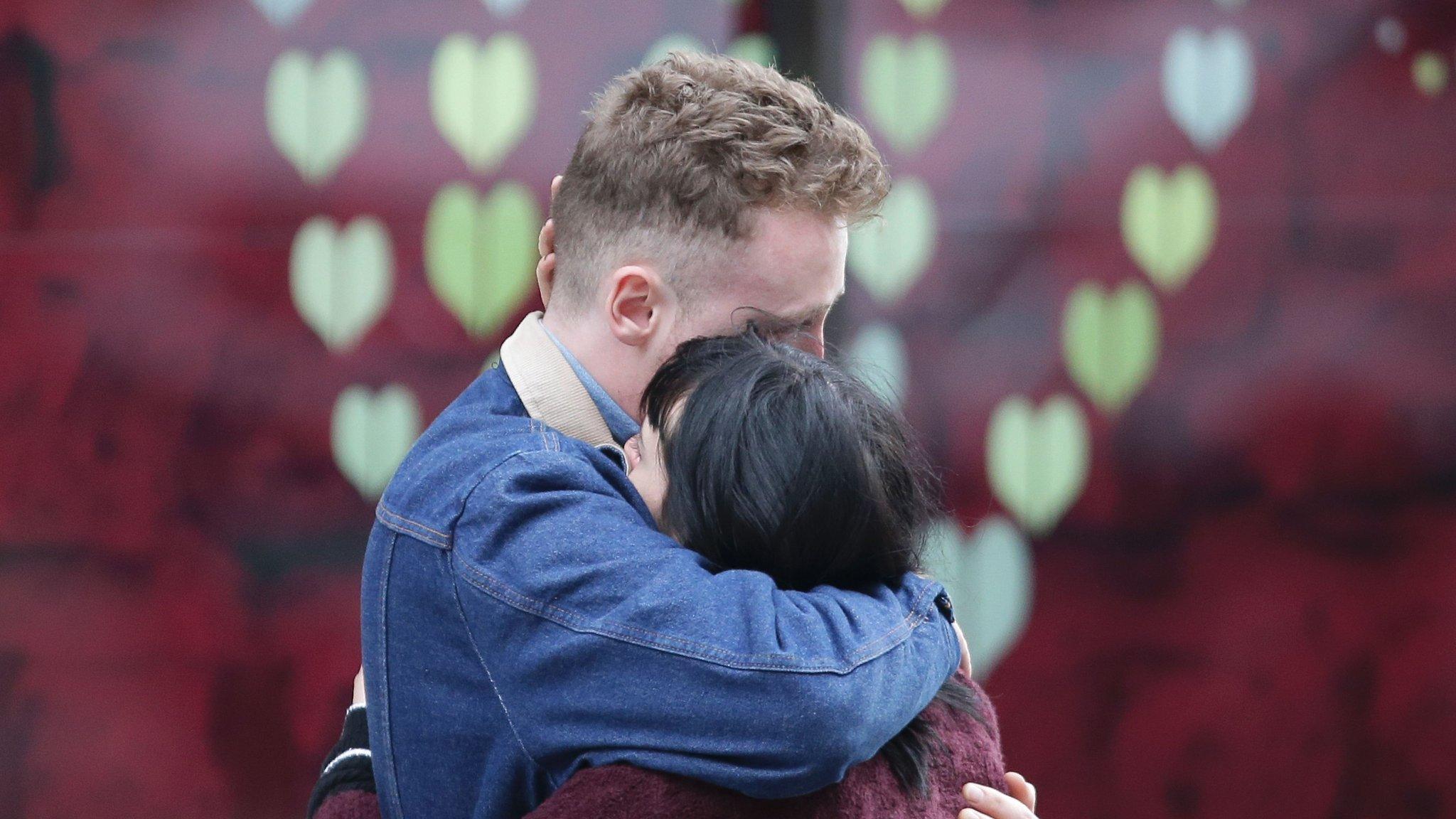
- Published12 June 2017
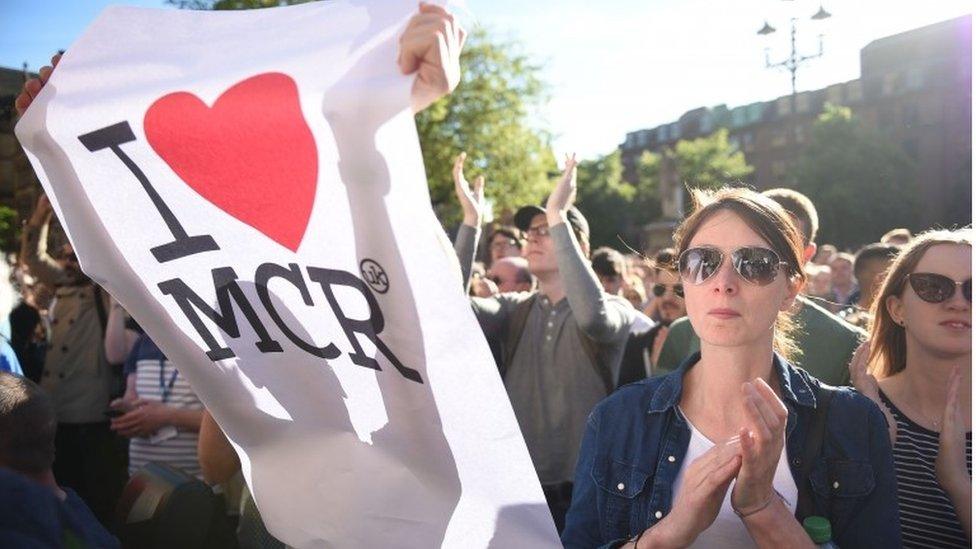
- Published7 April 2017
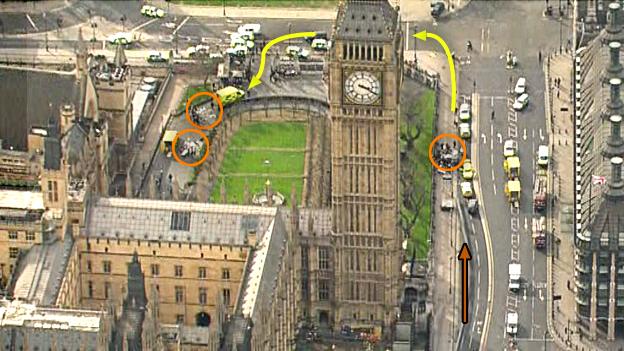
- Published19 June 2017
